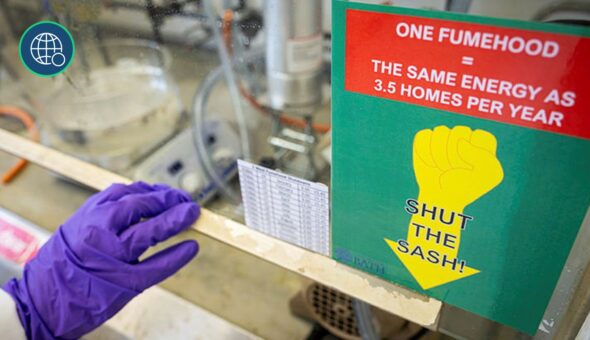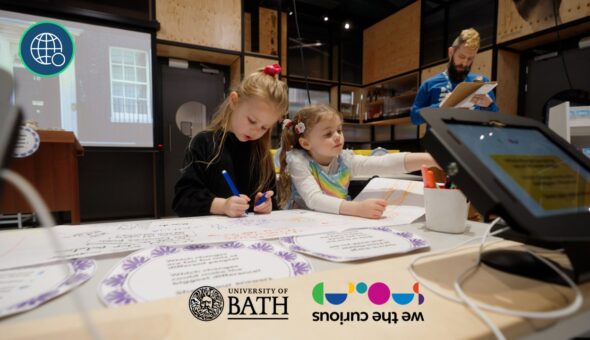In today’s complex and interconnected world, an awareness and observance to trusted research principles is essential for safeguarding both academic integrity and national security. As geopolitical landscapes shift, researchers are increasingly called upon to consider the broader implications of their work, particularly when it intersects with areas that could impact national security interests.
Following on from my previous blog entry on this topic (Trusted Research – some reflections), I have chosen to dedicate another post to this important topic.
In this blog I have invited Professor Richard Burke (IAAPS Academic Director) to share insights on Trusted Research, along with their firsthand insights of navigating these considerations within their own research journey.
Kind regards, Sarah
BLOG
As a specialist in sustainable propulsion systems, and like many academics working in STEM, research underpins my whole career. Contributing to academic progress means striving to explore new opportunities, which itself means establishing and developing new research partnerships, often with partners based around the world.
Working with others is often crucial to answering research questions, and in my own case, answering research questions about propulsion systems that underpin the transition to clean, sustainable and affordable propulsion is inherently inter-, and increasingly trans-disciplinary.
My work relies on understanding and engaging in the international context because, firstly the leading centres of expertise are distributed around the globe and secondly transitioning to the sustainable mobility of people and goods is a global problem that cannot be solved at a local level. Centres have developed around local mobility needs and local energy resources. However, in a global context, my research seeks to understand how we best deploy these technologies in different contexts, which is underpinned by international collaboration that expands my knowledge and practice.
At the beginning of my career, I was only really aware of research security risks on a basic level. I knew that the propulsion technologies that I was working on for passenger cars were similar to those technologies used in military vehicles, but this always felt far removed from the work I was doing and as a result, I did not pay it too much attention.
Then, in 2023 I was involved in an international collaboration where for the first time I was required to undertake a full due diligence check on my research. This was the first time I was directly working with organisations outside of the EU, as my previous international collaborations had typically been through UK or EU based subsidiaries and organisations. At first I was sceptical, frustrated even at the additional administration and management work required to undertake the research. I was falling back onto my established way of thinking: this doesn’t apply to what I’m doing. But, maybe in part spurred on by the current international security situation, but equally in response to understanding that I would be held responsible for any knowledge leaks, I engaged with the trusted research process.
The research collaboration was with one of the world leading universities in sustainable research and was aimed at decarbonising vehicles that are difficult to electrify due to the power and energy requirements. The intended applications are for land and sea freight and remote power generation, however the advancements will have potential other applications in defence as the knowledge required to improve efficiency is the same as that to improve performance. The trusted research process involved checking export control regulations, to ensure information could be freely exchanged. It also involved the completion of a due diligence check, where the ethical, reputational, legal, and financial risks of the external partners were thoroughly checked.
I encourage colleagues to embrace these processes, dispelling any misconceptions about them being overly burdensome. The Research Governance team and Research & Innovation Services (RIS) provided excellent support throughout. Going forwards, the University has embedded trusted research related questions into the ethics review process. This is designed to help us identify projects that require support and to limit delays. It’s not just propulsion engineering research where Trusted Research applies. Trusted Research is good practice to use for all research disciplines, but we should be especially stringent in protecting our research when it falls within STEM disciplines.
This is especially the case when our research is in sensitive areas that impact energy security and propulsion technologies with dual-use applications, because these areas are at the most risk from those who want to take this work and use it for malign purposes.
As academics, our research is our pride and joy, we’ve nurtured it for months and years, and we’re proud of it. It surely deserves to be taken good care of for its own good, but even more so, our careers and reputations depend upon our research. We must protect our research to protect these things too.
●●●●
So, what is Trusted Research? Trusted Research is advice and guidance that was originally created in 2019 by the National Protective Security Authority (NPSA) and the National Cyber Security Centre (NCSC) to support the integrity of the system of international research collaboration. The guidance was created in consultation with the academic sector and since 2019, the NPSA and the NCSC have continued to work collaboratively with the sector to develop further iterations of the guidance. The guidance:
- Outlines the risks to UK research and innovation.
- Helps researchers, UK universities and industry to have confidence in international collaboration and make informed decisions around those potential risks.
- Explains how to protect research and staff from potential theft, misuse or exploitation
For me, one of the most useful resources was using the UK Strategic Export Controls list, a key component of the UK’s Export Control regime. This was particularly insightful as it put into words and specific engineering terms, what is and what is not considered to be a security risk. In particular, it highlighted to me that for the types of thermal and propulsion machines that I typically research, there are specific technical considerations that can be used to gauge whether there is a security risk. Reflecting back on my earlier work, I can see that my early perspectives on research security were not wrong, and that in many cases the work I was doing did not present any security risks over and above commercial confidentiality. However, the document also provoked new thoughts that allowed me to better appreciate my research in its wider context, to make a more informed judgement about where my research was pushing the boundaries of current knowledge, and even provoked new ideas about how I should go about the research.
In my case, undertaking this review has reassured me that the work I am undertaking is safe and legal. The trusted research team have also provided insights into what to do, and what additional precautions that should be taken, should further risks be identified. For example, I am conscious that research with partners based in ‘embargoed destinations’ will require further due diligence. Many of the ‘precautions’ relate to the storage of and management of data, such as how to best use Microsoft SharePoint and University Research Storage safely and effectively. These are generally promoting good practice in protecting confidentiality, so we all have an opportunity to benefit from these steps.
Trusted Research does more than protect us as individuals, it protects the UK’s academic freedom by ensuring safety in international partnerships.
At the University of Bath support is available to help researchers to navigate trusted research related challenges. The Research Governance & Compliance team and specifically the Trusted Research Manager are available to provide tailored advice, 1-to-1 support, training, and support with regulatory compliance (such as export controls). Additionally, sitting in Research & Innovation Services (RIS), the Due Diligence & Compliance Manager provides support on due diligence, which is required for all funded external partners and collaborators. These teams are here to help academics to effectively identify and mitigate against research security risks.
Whether you’re at the start of your career or a seasoned and well-published academic, I would urge you to explore the Trusted Research advice and guidance, and engage with our colleagues for support. There’s so much at stake which might not seem obvious even to researchers who are long into their careers. In my experience, you can never be too proactive about protecting your research.
Useful links and resources:
- Contact the Research Governance & Compliance team via Research-Governance@Bath.ac.uk
- Contact the Due Diligence team via Due-Diligence@Bath.ac.uk
- University of Bath Principles for Establishing International Collaborations (here)
- Trusted Research Guidance Links (here)
- University of Bath Trusted Research Portal (here)
- National Protective Security Authority (NPSA) Trusted Research Guidance (here)



